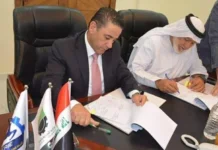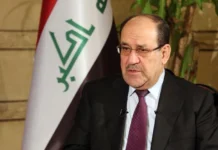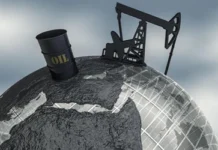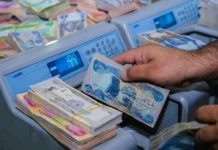Tishwash: Singapore is a strategic hub for Iraqi oil. SOMO: External reserves to face crises, and ExxonMobil is a key partner.
Economist Nabil Al-Marsoumi revealed on Saturday the reasons behind Iraq’s choice of Singapore as a location for storing Iraqi oil. This comes after the State Oil Marketing Organization (SOMO) announced advanced agreements with ExxonMobil to enhance storage and refining in the Asian market.
In a clarification followed by Basra 365, Al-Marsoumi said, “The anticipated agreement with ExxonMobil aims to provide storage capacity in Singapore, giving Iraqi oil exports greater flexibility to respond to any emergency, whether it be the closure of the Strait of Hormuz or natural or political circumstances that might impede the flow of oil to global markets.”
He added, “Although Singapore is not a major oil producer or importer, it represents a significant international market thanks to its strategic geographic location on shipping lanes between the Mediterranean and Western Europe on the one hand, and the Far East on the other, making it home to the most important commercial ports in Southeast Asia.”
Al Marsoumi pointed out that “Singapore’s political stability, its open and transparent environment, its advanced judicial and legislative system, and its highly competitive financial and banking system are all factors that have contributed to making it a global hub for oil trading.”
He pointed out that “the advanced technological infrastructure, logistical support, and availability of specialized administrative and technical expertise have enabled Singapore to efficiently manage oil storage and trading operations at an international level.” link
************
Tishwash: The President of the Republic: It is necessary to establish a sovereign fund from oil and gas revenues, as they belong to current and future generations.
President Abdel Latif Jamal Rashid stressed on Saturday the need to establish a sovereign fund from oil and gas revenues, as they belong to current and future generations.
The Presidency of the Republic said in a statement received by ( IQ ), “President of the Republic Abdul Latif Jamal Rashid received at the Peace Palace in Baghdad a delegation of participants in the Baghdad International Energy Forum, which included the Secretary-General of OPEC, Haitham Faisal Rashid, the Minister of Oil and Gas in the Libyan Government of National Unity, Khalifa Rajab Muhammad Abdul Sadiq, the First Undersecretary of the Ministry of Production – Egyptian Ministry of Petroleum, Ihab Rajai, and the Undersecretary of the Turkish Minister of Energy and Natural Resources, Ahmet Barat Chonkar, in the presence of the Deputy Prime Minister for Energy Affairs and Minister of Oil, Hayan Abdul Ghani .”
He added, “At the beginning of the meeting, the President welcomed the delegation and pointed out Iraq’s keenness to advance the national energy sector and its efforts to enhance constructive partnerships with its regional and international surroundings in a way that serves the aspirations of peoples for progress and stability
The President of the Republic explained, according to the statement, that “Iraq, based on its strategic location and diverse wealth, is capable of investing in available natural resources and adopting sustainable solutions, in addition to its role as a pivotal partner in the transition to a green economy and the move towards the use of renewable energy .”
Rashid pointed out that “Iraq is experiencing a state of security and stability after decades of war, terrorism, and the problems the country has been suffering from,” emphasizing “the importance of investing in the oil sector, as this phase represents the beginning of real investment, and the necessity of establishing a sovereign fund from oil and gas revenues, as they belong to current and future generations.
He stressed that “holding the forum is a promising step to highlight Iraq’s pioneering role in the energy sector,” noting that “success in this field will contribute to formulating new visions for energy policies and expand the horizons of cooperation with international companies to invest in the Iraqi market.” He wished the Baghdad Forum success, and the participants good luck in reaching decisions that serve the development of the energy sector, achieve national interests, and meet the aspirations of the people .
In turn, the delegation members expressed, according to the statement, “their sincere desire to deepen the positive relationship with Iraq to include all sectors .” link
************
Tishwash: Economist: Storing Iraqi oil in the Sultanate of Oman is a strategic project to expand export outlets.
Economic expert Nabil Al-Marsoumi confirmed that the signing of two memoranda of understanding between Iraq and the Sultanate of Oman to develop a crude oil storage project in the Ras Markaz area of Oman represents an “important strategic step” toward expanding Iraqi oil exports to global markets, particularly in Asia.
Al-Marsoumi explained in a blog post followed by Al-Mada that the project, which begins with an initial capacity of up to 10 million barrels, subject to expansion, provides Iraq with greater flexibility in the face of potential disruptions at Basra ports, whether due to climatic conditions or crises in the Strait of Hormuz. He pointed out that the Sultanate of Oman, in turn, seeks to transform the Duqm area into a regional center for storing and re-exporting oil, with a total capacity that will eventually reach 200 million barrels.
He added that Iraq’s plans are not limited to storage in Oman alone, but also include the construction of oil tanks and refineries in Southeast Asia and the Eastern Mediterranean, which would contribute to diversifying export outlets and opening new markets in Africa and Europe, in addition to strengthening its presence in the Asian market.
Al-Marsoumi pointed out that the project has a strategic dimension for Iraq, but it requires a careful study to calculate the investment costs and storage fees in Amman’s warehouses, while assessing the possibility of doubling Iraq’s storage capacity there, to ensure economic feasibility that matches the geopolitical dimension the project provides. link






